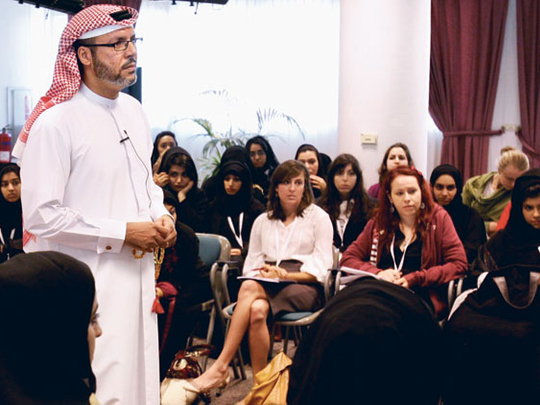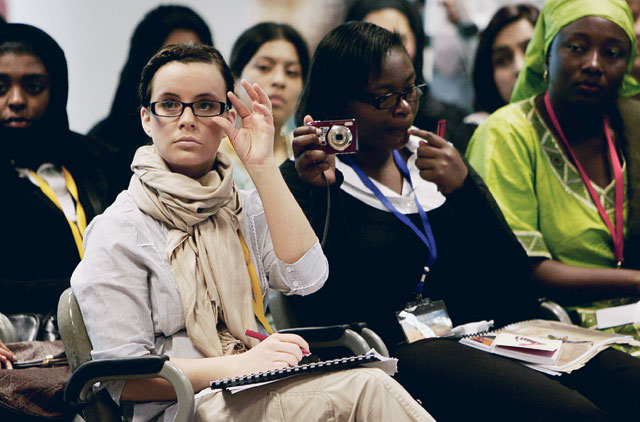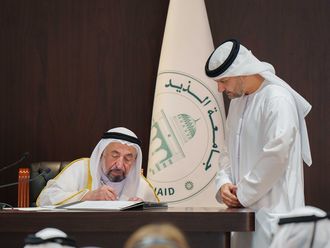
Popular stereotypes upheld worldwide about Islam were broken down as international students openly questioned Islamic law at the Insight Dubai Conference, hosted by Dubai Women's College last week.
Female students from 35 countries joined their Emirati counterparts for a week-long cultural exchange to help promote tolerance and understanding in diversity.
"Unfortunately, globally the media has enforced a false preconception about Islam that most people accept as self-evident," said Ammar Shams, head of business development at HSBC.
Shams, who also holds a Master's degree in international and comparative legal studies, specialising in Islamic law from the university of London, delivered an in-depth talk about child custody in Sharia law, which opened a flood of questions from students about various issues on Islam.
"There is sufficient depth, exploration and debate that Islam and the law in Islam is a very living process, it's not as some people say dead and stuck in time," said Shams.
Clarity
"I believe his [Ammar Shams] talk gave me a broader perspective and showed me another side of Islam I didn't know about," said Godelieve Olbrice, a Haitian student from the University of Aruba.
"The media sometimes tries to project only a bad side of Islam and Muslims in general, but he made us understand that Islam gives freedom, which will make us all go back home and clarify that media projections are not the truth," she added.
"From a Canadian perspective, when we were growing up we were taught women in Islam are discriminated against and have no rights," said Gillian Reid, a Canadian student from Cape Breton University.
"Being Canadian, our rights are very vocal…but the media portrays Muslims in the same way we were taught as children; but what I've come to know is Islamic laws are there to protect," she added.
Reid said there may be some violations on how she sees things as she comes from a Canadian perspective. "However, I respect it in one sense because the government and laws back home are not very clear," she said.
"In Islamic law if you have an economic or family problem for example, you have guidance, you know exactly where to go and who to consult," said Olbrice. "Islamic laws are clearly stipulated whereas back home you get confused. They tell us we have rights and freedom but actually we don't," she added.
"I can see Muslim women and men know the laws and try to abide by them. They take all decisions seriously because they know the consequences."
"Contrary to us back home, we claim to have freedom but actually we are not free because our laws aren't clear," said Olbrice.













